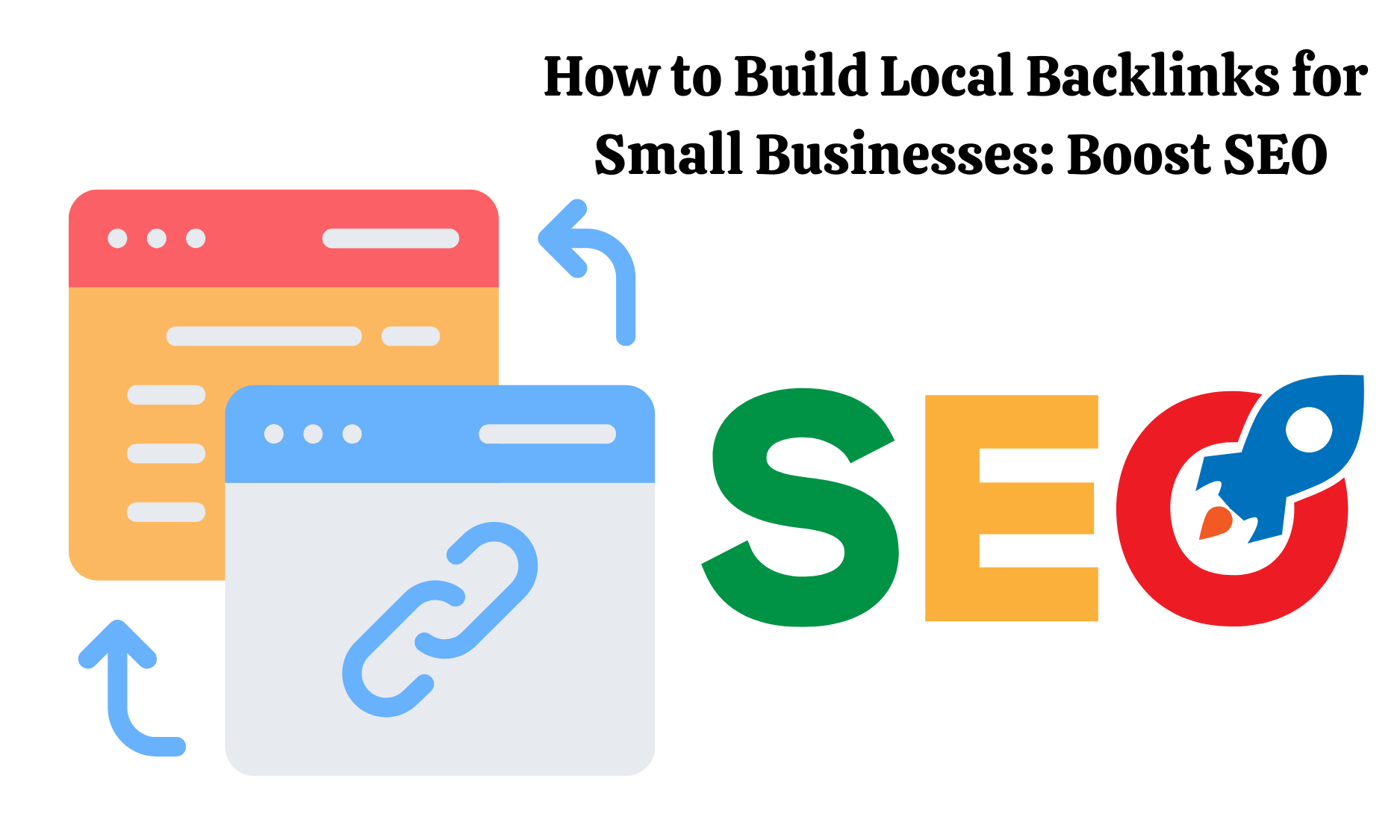How to Build Local Backlinks for Small Businesses
For small businesses, local SEO is a game-changer. It helps you connect with customers in your area, drive foot traffic, and grow your business. One of the most effective ways to improve your local SEO is by building local backlinks. Backlinks from reputable local websites signal to search engines that your business is trustworthy and relevant, which can boost your rankings in local search results.
In this blog, we’ll explore how small businesses can build local backlinks to improve SEO, increase visibility, and attract more customers. From leveraging community partnerships to creating shareable content, we’ll cover actionable strategies to help you succeed.
What Are Local Backlinks?
Local backlinks are links from other websites that point to your website. These links are particularly valuable when they come from local sources, such as:
- Local news websites
- Community blogs
- Chamber of Commerce websites
- Industry-specific directories
- Local influencers or bloggers
Local backlinks help search engines understand your business’s relevance to a specific geographic area, which can improve your rankings in local search results.
Why Local Backlinks Matter for Small Businesses
Building local backlinks offers several benefits for small businesses:
- Improve Local SEO Rankings:
Backlinks from local websites signal to search engines that your business is relevant to the area, which can boost your rankings in local search results. - Increase Online Visibility:
Local backlinks can drive referral traffic to your website, increasing your online visibility. - Build Trust and Credibility:
Backlinks from reputable local sources build trust with both search engines and potential customers. - Strengthen Community Connections:
Building local backlinks often involves collaborating with other businesses and organizations, which can strengthen your ties to the community.
Now, let’s dive into how to build local backlinks for your small business.
1. Leverage Local Partnerships
Partnering with other local businesses and organizations is a great way to earn backlinks. Look for opportunities to collaborate on events, sponsorships, or joint promotions.
How to Build Local Partnerships:
- Sponsor local events, sports teams, or charities.
- Collaborate with complementary businesses on cross-promotions (e.g., a bakery partnering with a coffee shop).
- Join local business associations or networking groups.
Example:
If you own a fitness studio, partner with a local health food store to offer a joint promotion. They can link to your website in their blog or newsletter.
2. Get Listed in Local Directories
Local directories are a valuable source of backlinks for small businesses. Many directories allow you to include a link to your website, which can improve your SEO.
Top Local Directories to Consider:
- Google My Business
- Yelp
- Bing Places
- Yellow Pages
- Chamber of Commerce websites
- Industry-specific directories (e.g., Zocdoc for healthcare, OpenTable for restaurants)
How to Submit Your Business:
- Create an account on the directory.
- Enter your business information, including your website URL.
- Verify your listing if required.
3. Create Shareable Local Content
Creating high-quality, shareable content is one of the best ways to earn backlinks. Focus on content that resonates with your local audience and encourages other websites to link to it.
Types of Local Content to Create:
- Blog Posts: Write articles about local events, news, or trends.
- Guides: Create guides or resources tailored to your local audience (e.g., “Top 10 Restaurants in [City Name]”).
- Infographics: Share visually appealing data or tips related to your niche.
- Videos: Create videos showcasing your business or local community.
Example Blog Topics:
- “5 Must-Visit Attractions in [City Name]”
- “How to Support Local Businesses in [City Name]”
4. Engage with Local Media
Local media outlets, such as newspapers, radio stations, and TV channels, often cover stories about local businesses. Building relationships with journalists and editors can help you earn backlinks from their websites.
How to Engage with Local Media:
- Send press releases about newsworthy events (e.g., grand openings, anniversaries, or community initiatives).
- Pitch story ideas related to your business or industry.
- Offer to contribute expert quotes or articles.
Example:
If you own a bakery, send a press release about a new line of gluten-free products and offer to provide samples for a feature story.
5. Collaborate with Local Influencers and Bloggers
Local influencers and bloggers often have strong online followings and can help you earn backlinks by featuring your business on their websites or social media platforms.
How to Collaborate with Influencers:
- Identify local influencers or bloggers in your niche.
- Reach out with a personalized pitch offering a free product, service, or exclusive experience in exchange for a review or feature.
- Ask them to include a link to your website in their content.
Example:
If you own a boutique, invite a local fashion blogger to visit your store and write a blog post about their experience.
6. Participate in Community Events
Participating in or sponsoring local events is a great way to build relationships and earn backlinks. Many event organizers list sponsors and participants on their websites, which can include a link to your business.
How to Get Involved:
- Sponsor a local festival, charity run, or school event.
- Host a workshop or seminar and promote it on community websites.
- Volunteer at local events and ask for a mention on the event website.
Example:
If you own a pet store, sponsor a local dog adoption event and ask the organizer to link to your website.
7. Submit Guest Posts to Local Blogs
Guest posting on local blogs is an effective way to earn backlinks and establish yourself as an authority in your community.
How to Find Guest Post Opportunities:
- Search for local blogs in your niche (e.g., “[City Name] + blog”).
- Reach out to the blog owner with a pitch for a guest post.
- Include a link to your website in your author bio or within the content.
Example:
If you own a landscaping business, write a guest post for a local home improvement blog about “5 Tips for Maintaining a Beautiful Lawn in [City Name].”
8. Monitor and Track Your Backlinks
Regularly monitoring your backlinks helps you understand their impact and identify new opportunities.
Tools to Monitor Backlinks:
- Google Search Console: Tracks backlinks to your website.
- Ahrefs: Provides detailed backlink analysis and competitor insights.
- SEMrush: Offers backlink tracking and audit tools.
Common Mistakes to Avoid
- Focusing on Quantity Over Quality:
A few high-quality backlinks from reputable sources are more valuable than many low-quality links. - Ignoring Local Directories:
Local directories are an easy and effective way to build backlinks. - Neglecting Relationships:
Building backlinks often requires building relationships with other businesses, influencers, and media outlets. - Using Unnatural Link-Building Tactics:
Avoid buying backlinks or using spammy tactics, as these can harm your SEO.
Building local backlinks is a powerful strategy for small businesses to improve SEO, increase visibility, and attract more customers. By leveraging local partnerships, creating shareable content, and engaging with your community, you can earn valuable backlinks that boost your rankings and grow your business.
Remember, building backlinks is an ongoing process. Regularly monitor your progress, stay active in your community, and continue to create high-quality content. Start building local backlinks today and watch your small business thrive!




